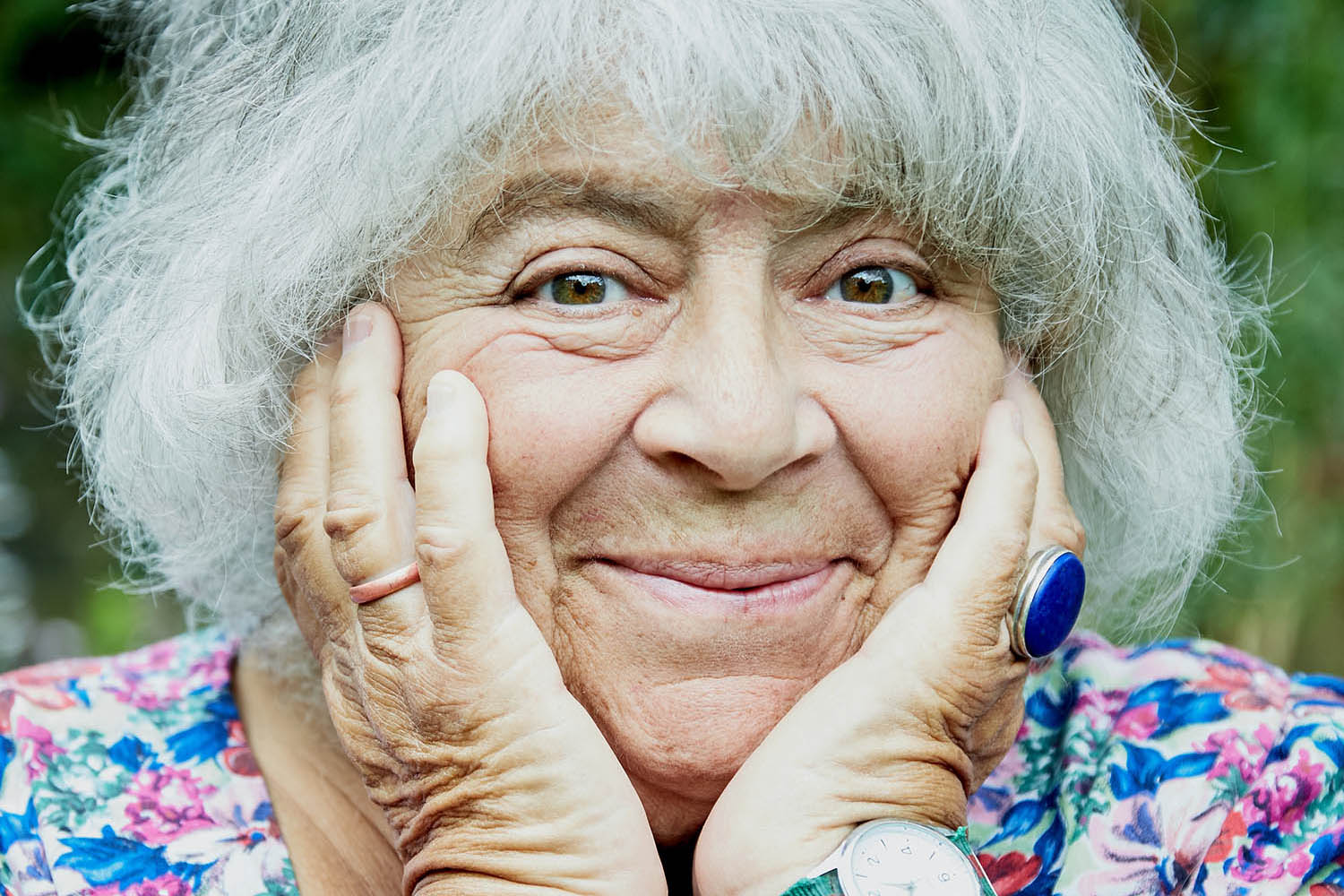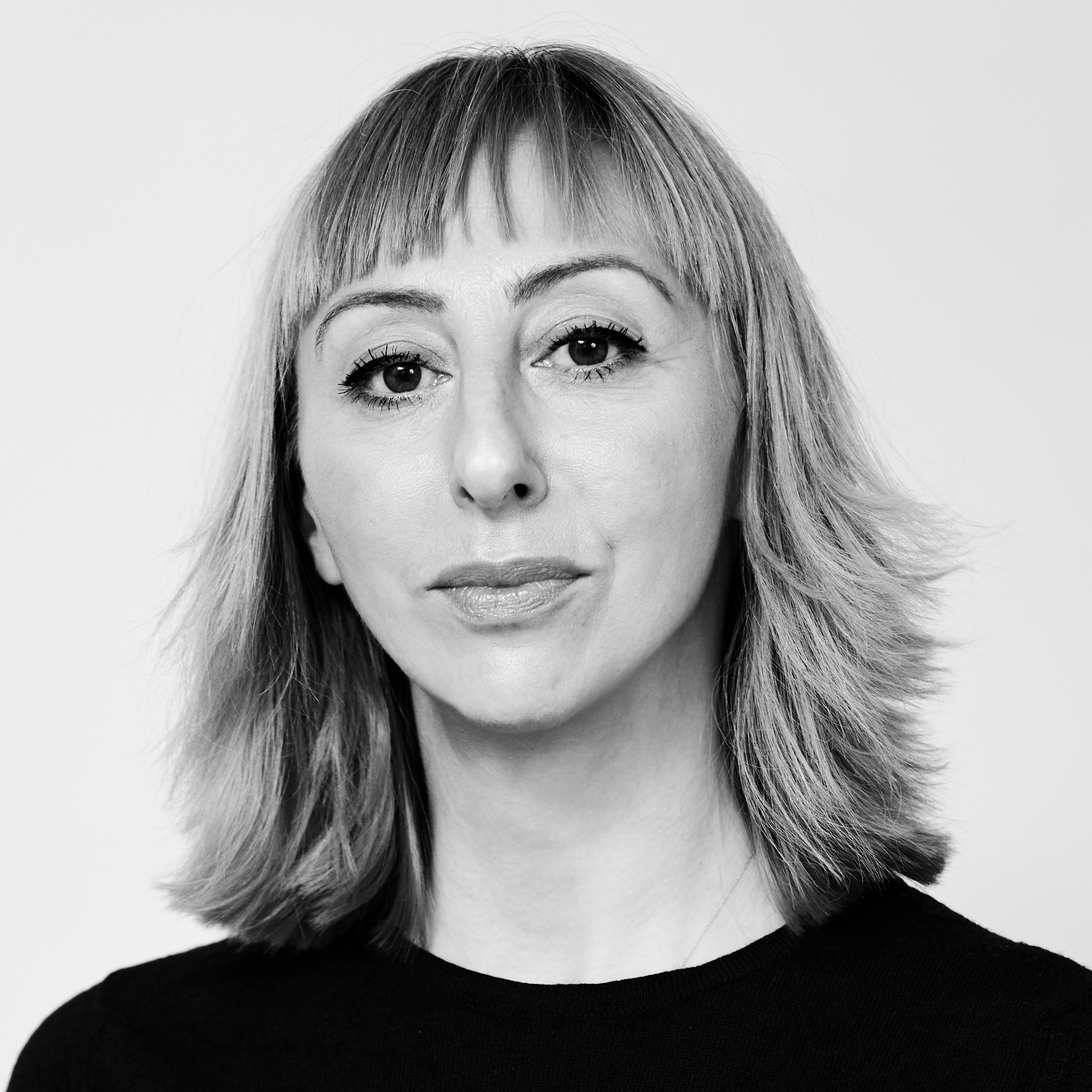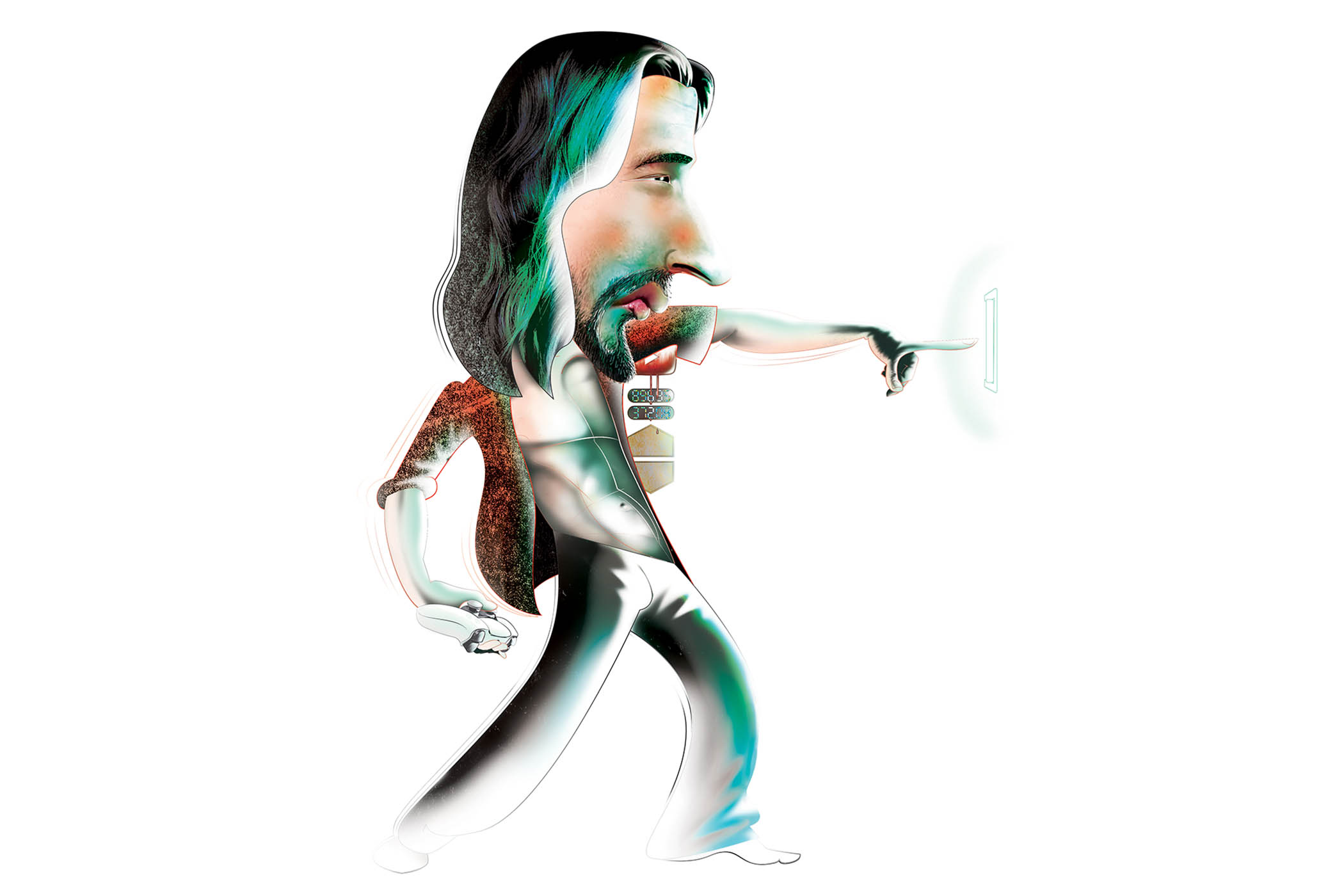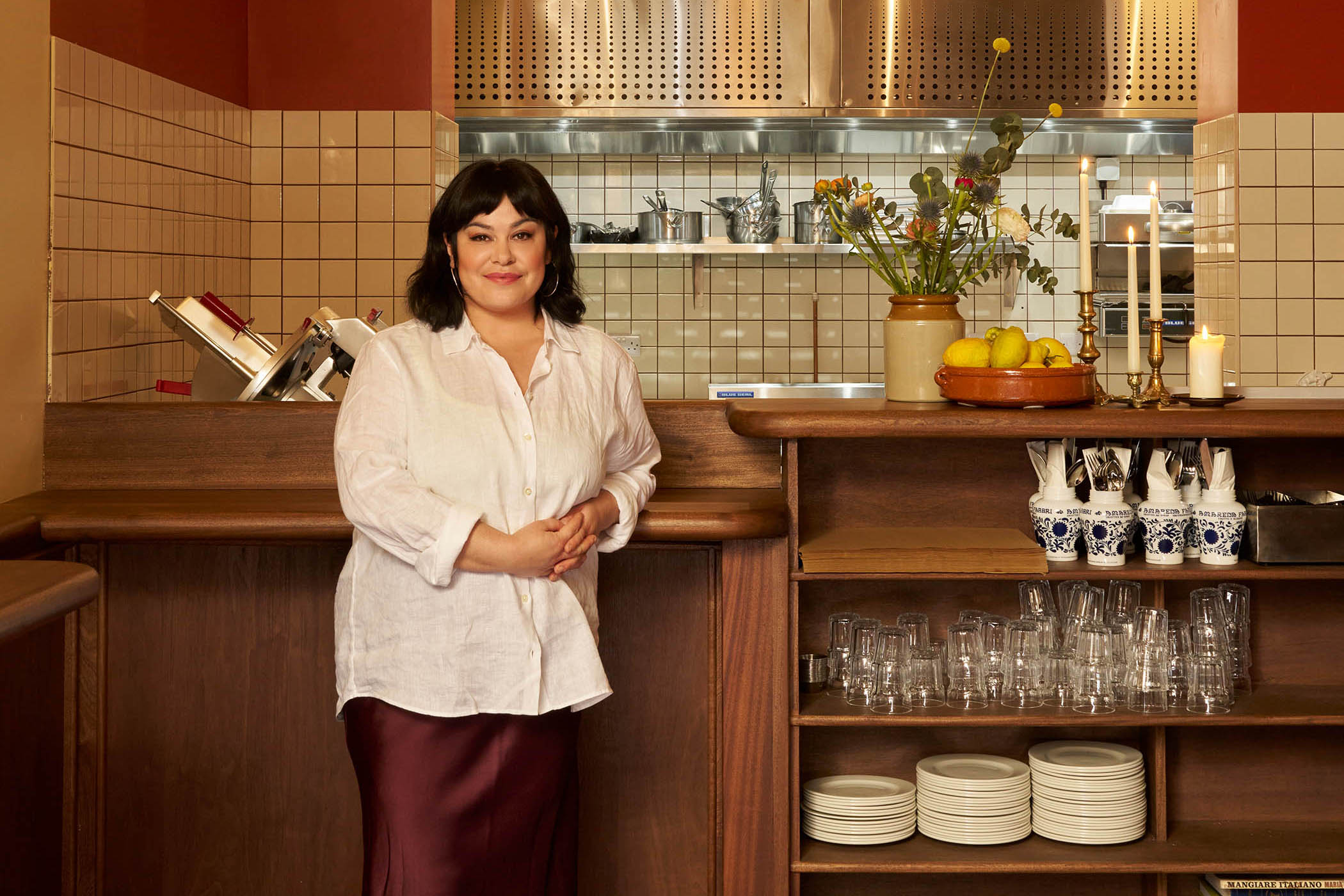Photographs Chris McAndrew
A year or so after I first interviewed Miriam Margolyes, I was asked to write her obituary. Perhaps it’s not so odd a thing – newspapers like to have obituaries of famous people ready to publish in advance of their deaths and, at 84 and grumbling every now and then about various health gripes, she perhaps didn’t have decades to go. But still, it was a slightly bewildering experience, imagining a world without Miriam in it, her stories about blowjobs and love and Dickens. So when, last month, I was invited to meet her again, I leapt at the chance.
She settles me next to her in the garden with a glass of cucumber water (“Don’t you think that’s a bit sophisticated?”) and rather than scoffing at the greatly exaggerated news of her death, explains why it angered her. “Because I think it’s about the anti-Zionist business. They wanted to make out that I was dying.” There had surfaced, she says, old Facebook photos of her in hospital and newspapers started loudly speculating, with, “Articles saying, ‘I don’t think Miriam will be coming to the Edinburgh Festival. I don’t think she’s going to be lasting that long.’ Now, that’s deliberate. To stop me selling tickets.” She believes it’s linked to the Campaign Against Antisemitism (CAA) recently calling for her to be “shunned by the showbiz world” after she accused Israel of behaving like Nazi Germany. “Stripped of my bra, I would worry. Stripped of my OBE? That’s not going to happen.”
She’s joking, of course, but of course, she’s not. “I understand the [CAA’s] pain, but where is their shame? That, to me, is the crucial thing, that we, of all people, should be meting out this horror. Where do we go from here? How does this end?”
By “we” she means Jewish people – in her early days at the BBC in the 1960s, she wore a badge to work that said, “Gay Yids”; she’s always worn her Judaism proudly. Has the war in Gaza affected her Jewishness? “Yes, I think it has. I’ve stopped believing in God. And it’s made me question what the point is of any religion if it can encourage and entitle such behaviour.” She feels a muddled sort of pride, still – Jews are remarkable people, she says. “We’ve made a difference to the world. And that’s all just melted away down the toilet. Just who are we now? Murderers of children. And they think that’s going to help the poor suffering hostages, for whom I also mourn?” She clenches her fists, distressed now. “Israel has lost the respect of the world. I’m shocked and saddened that they [the CAA] think I’m the criminal. And I don’t like being bullied and threatened.” She is actively resisting cancellation and/or death. “I’m a decent person. So, good luck! I’m a human being before I’m a Jew, or a woman or a lesbian. And I see human beings being wiped out deliberately, by people who have some connection with me. Well, I do not support it. That’s it.”
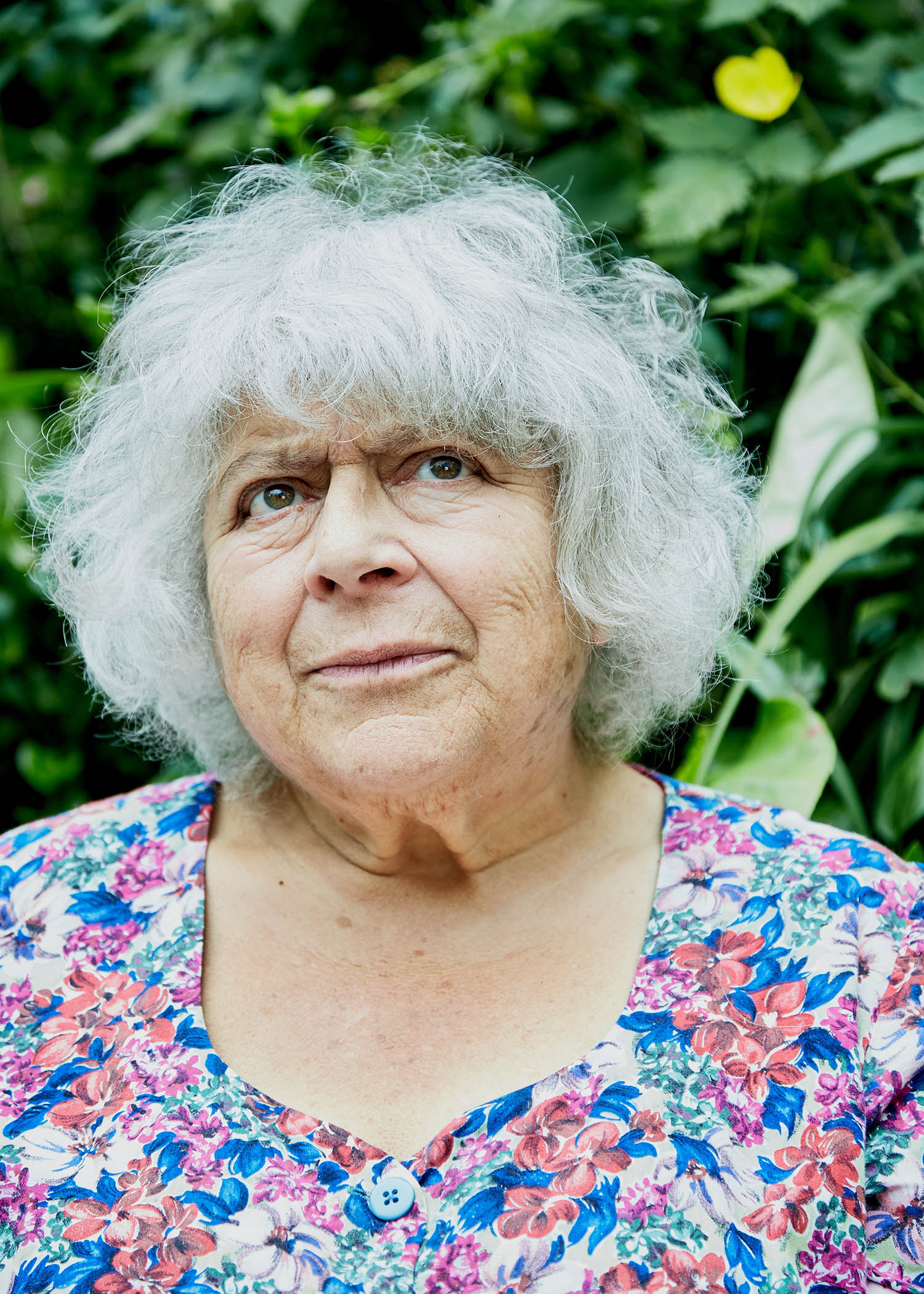
This is not an unfamiliar conversation for her, or for me, or for many Jewish people right now. These are conversations happening over Friday night dinners and on long car rides, unpicking our Jewish identities at a time when antisemitism is rising, which is terrifying, and when that rise is being weaponised, which is horrifying. There tends to come a moment in these conversations, too, where one or the other will take a breath, and offer kindly to change the subject.
The contents page of Margolyes’s delightful new book includes lists like: “apartheid; apostrophes… arsehole…”, and, “cock-sucking; coffin; comedy; …crisps; cunt,” and, “fandom; farting; fat; fellatio,” and, “partner; patriarchy; penis; period costumes; periods,” all of which read pleasingly, as an abbreviated, alphabetised autobiography. It contains details of her first orgasm (aged eight, walking past the house of a teacher she loved passionately), being propositioned by Warren Beatty (“Do you fuck?”, “Yes, but not you,”), thoughts on Switzerland (“I’m not fond of Swiss things, except fondue and Dignitas”), politics (“Of course I’m woke. And proudly so,”) and swearing – when she’s castigated for her “potty mouth”, she says she wants to respond with a question about Gaza or Grenfell, her point being, however many times she says “cunt-face”, “no one dies as a consequence”.
The book also contains a series of dinner-party questions, which we decide to work through leisurely. “Wait, I’m just going to fart.” She raises her right cheek and a jangling drum roll echoes through the garden. “There we go. Special treat.” Do her farts smell? “Well, it depends what I’ve been eating.” What have you been eating? “Chopped liver.”
OK, dinner-party question one: When did you have your first fuck? “Well, I’ve never had a prick right up me.” She purses her lips as she tries to remember the first time she had sex with a woman: “25? I mean, there was a lot of cock sucking, but that doesn’t count.” She talks often of cocks, (there is an extended anecdote in the book that begins with one of her famous chat-show stories, about wanking off a soldier she found in a tree, but continues with two additional encounters that same evening with men who’d sidled up after seeing her with the soldier) but she’s far more discreet about sex with women. Is that because the stories are less funny? “Well, yes. And also because women matter. Men don’t.”
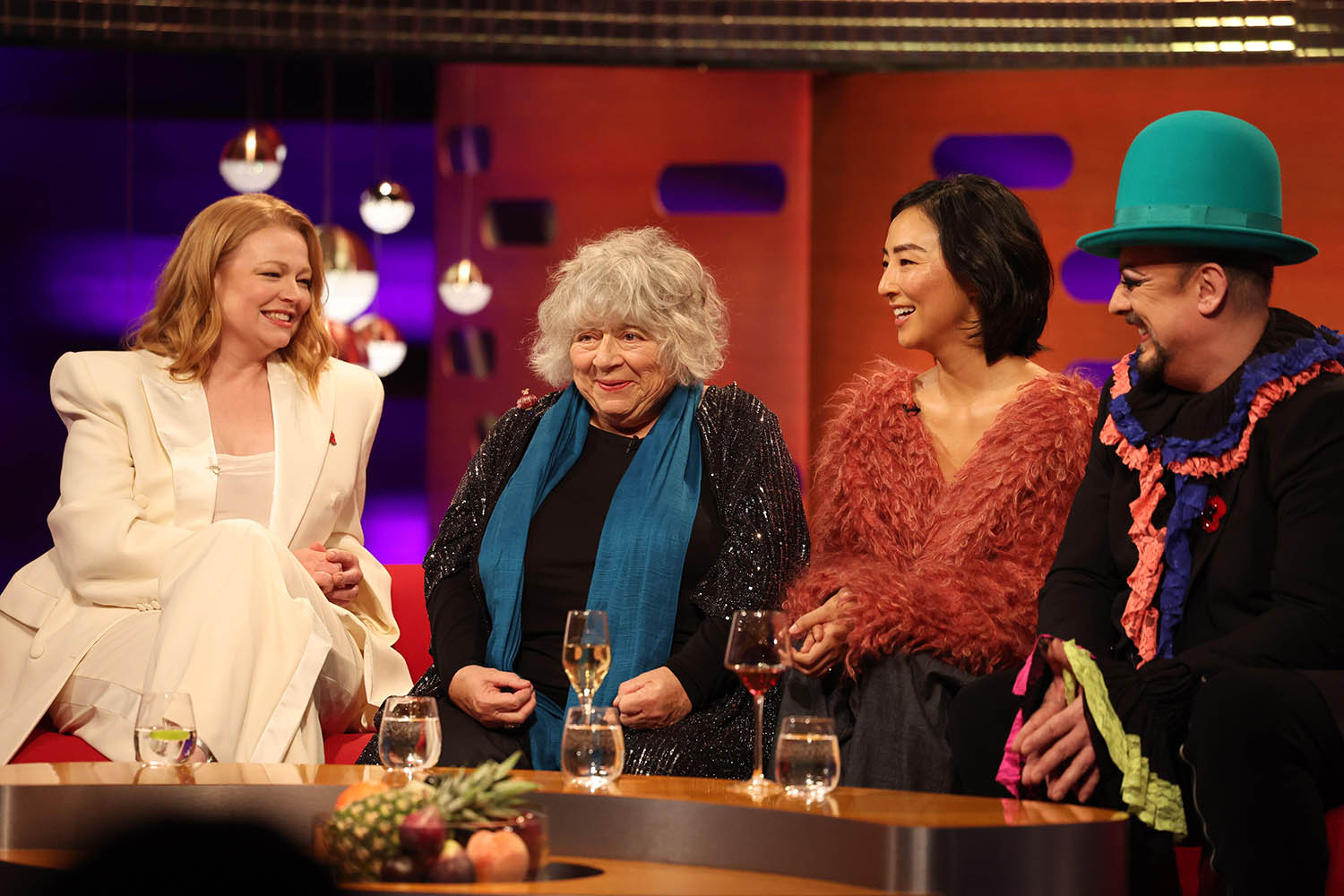
A right laugh: Margolyes is a regular guest on The Graham Norton Show – here with Sarah Snook, Greta Lee and Boy George. Photo: PA Wire
Question two: how long do you want to live? “As long as I wasn’t doubly incontinent I’d like to live forever.” It doesn’t seem inconceivable, honestly. Her father died at 95, “But oh, I think he would be very upset and disturbed at what I’m most famous for.” Which is what? “Cock sucking, I suppose.” Is that how it feels? “Well, sometimes, because people always want to talk to me about cocks and farting, and you know, I have got more to offer than that. But I don’t mind being a butt for jokes. Makes me laugh, too.” Do you really want to live forever? “Yes. Because I want to know what happens.”
Newsletters
Choose the newsletters you want to receive
View more
For information about how The Observer protects your data, read our Privacy Policy
We refill our glasses and consider ice-cream. Margolyes has moved into the basement flat of her London house and taken in two charming lodgers (one of whom is developing a sitcom about their intergenerational relationship), but she has plans, after 57 years together, to finally move in with her partner Heather. Why now? “The world around us has lost its charm. And we just want each other in a beautiful place which we know.” They’ll live in Tuscany, with a couple there who’ll care for them. “We can toddle along and laugh and just quietly subside into old age. But together.”
Margolyes will leave everything to Heather, but if she dies first there’s a list of people and bequests, including one to a Palestinian university. Death hovers at the edge of every question. “We’re here for such a short time. It’s gone so fast.” She feels tottery and stiff, but, “Mentally, I’m still fairly crisp.”
Question three: What enrages you about modern life? “The greed and the insistence on externals. What people look like, how much money they have, Botox, all that nonsense. When you kiss someone, you don’t want ‘filler’. You want the mouth. You want the subtle yielding of skin that belongs to someone you love or desire.” Connection. “Yes. Not with a layer in between, yucky poos!” She had a meeting this morning and wondered maybe if she should have worn makeup, “But then I just thought, you know, fuck it. This is what I look like. This is who I am. Who am I trying to kid? I’ve never been beautiful, yet I’ve managed, I’ve managed with the force of my personality and the energy of my intelligence. And that will have to do.”
I’ve never been beautiful, yet I’ve managed, with the force of my personality and the energy of my intelligence. That will have to do
I’ve never been beautiful, yet I’ve managed, with the force of my personality and the energy of my intelligence. That will have to do
Question four: What’s been your greatest sin? “I think probably hitting my mother when she was paralysed, out of exhaustion and frustration, but I’ve not done anything that I would call a big sin. I’ve never killed anybody. I’ve never stolen anything.” You’ve never stolen anything? “Well, that isn’t completely true. I did steal two eggs from a shop in Plaistow in 1964.” Would she like to apologise on the record? “Not really.” Five: Religion? “Should be abolished.” And yet she goes to synagogue, to hear those, “sad sounds of the prayers. And I feel a connection of some kind with what has been. I can’t explain it rationally. There is a tug, a longing for more innocent, gentle times.” How do we shape a Jewish identity today? It’s about, she says, recognising our “otherness”. Which means, too, recognising, “our connection with the other ‘others’, Muslims, the poor, the refugees, the migrants, old people. The people that nobody wants.”
Question six, Should cunnilingus be taught in schools? “Only by experts.” Do you prefer to look forward or backwards? “Backwards. I cannot recommend these times, I really can’t.” Should obesity be a punishable offence? “Yes, I think it should. My greed, although it’s bad for me, is almost worse for the general public because I’m taking up space and I’m taking up money from the National Health.” What about body positivity? “I’m afraid I think that’s a load of baloney.” Six: Who benefits most from anal sex? Grandly, “I don’t think the arsehole is a pleasure ground.”
Between us, her phone is flashing an alert from celebrity app Cameo with a certain urgency – during the pandemic, she started selling videos of herself to fans. “Just a minute. Where’s my glasses? I’ll just record one quickly.” She swiftly reads the fan’s request and starts recording. “Hello, Simmy! It’s Miriam Margolyes, this is from Maxie, who’s actually paid me to wish you a very happy birthday on the 14th of October. Seems a bit early. Anyway…” She wraps up, with a majestic kind of warmth, and chuckles. How much has she earned on Cameo so far? Glasses back on, quick scroll, and I lean in to see a figure very close to half a million pounds. “What about that? What about that!” We toast our sophisticated waters. “Fart coming up!” Odourless.
Since our last interview, Margolyes has sold 1.3m books, a feat she boggles at. “It turns out I do have a genuine humility, bordering on incredulity that anybody would want to know about my life.” After a 50-year career, it’s vaguely bewildering to finally become famous for, she grins, “just being me.”
The Little Book of Miriam by Miriam Margolyes is out on 11 September (John Murray, £16.99). Order a copy at observershop.co.uk for £15.29
